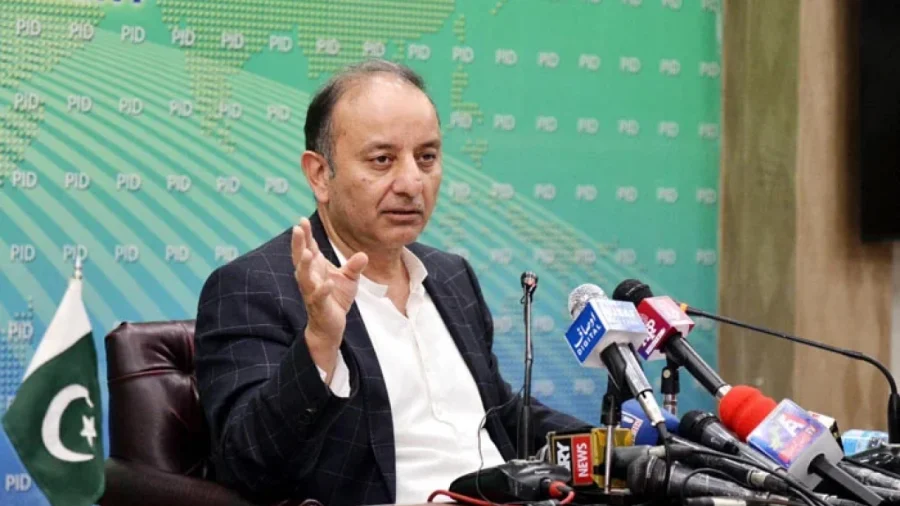Zubair Qureshi Islamabad
Pakistan will not just talk green but will achieve a just and clean energy transition; with or without rest of world for our future generations”, said Dr Musadik Malik, Minister of State for Petroleum Division while speaking at parliamentary consultation titled “Towards a Sustainable Future: Inclusion of Just Energy Transition and Climate Action in Election Manifestos 2023” jointly organized by Sustainable Development Policy Institute (SDPI) and Parliamentary Taskforce on SDGs.
Musadik Malik was of the view that the Russia-Ukraine crisis caused un-proportional energy inflation on developing countries thwarting the clean energy transition and access.
Therefore, it is imperative that a just and clean energy transition be supported with finance mobilization for developing countries to enable technology transfer and indigenous development. He stressed that accountability should for clean energy transition extend equally across the table and not just on developing countries. Dr. Musadik emphasized that Petroleum companies in Pakistan including Oil and Gas Development Company Limited (OGDCL), Pakistan Petroleum Limited (PPL), Pakistan State Oil (PSO) have been urged to transition into energy companies and are looking to invest in renewable energy.
Romina Khurshid Alam, Special Assistant to the Prime Minister, emphasized that prioritizing climate action and renewable energy while designing party manifestos can exhibit commitment to tackling climate change and can strengthen Pakistan’s position in international climate finance partnerships. Clean energy solutions, just energy transition and climate action in election manifestos are not only crucial in addressing the climate crisis but demonstrate commitment to deliver social justice, economic growth, and global leadership. In collaboration with SDPI, she also proposed a resolution to phase out fossil fuel .
Senator Taj Haider emphasized addressing the policy inconsistency in the energy sector of Pakistan to ensure a rapid offtake of RE in Pakistan.
He said that 3000MW are generated from wind and solar at Jhimpir but poor transition infrastructure hinders supply to other areas and these issues are impeding foreign investor interest in wind and solar power plants. He informed that the Senate has unanimously passed a resolution proposing that industrial areas must be equipped with solar parks. He further said that post 2020 floods, in Sindh, 50,000 houses have been reconstructed, 200,000 houses have been solarized and out of the 2000 700 reverse osmosis plants are solarized. He urged for improving transmission infrastructure and installing local grid systems to improve energy access in impoverished areas.
Dr Shafqat Munir, Deputy Executive Director, SDPI said that energy, water, and agriculture are crucial contemporary issues exacerbated by climate change and SDPI is keen to support policymakers in developing policies for mitigation action and boosting the clean energy transition. He also presented a motion urging the Parliament to address the action gap to ensure smooth energy transition in favor of renewable energy sources, by advocating establishment of “International Treaty to phase out fossil fuels”.
Dr Khalid Waleed, Research Fellow, SDPI, presented “Agenda for Energy Sector Reforms” which are structured around five key areas: i) Transition to Renewable Energy, ii) Economic Recovery of Energy Sector, iii) Electrification and Decarbonization of End-Use sectors, iv) Rural Electrification, and v) Increased focus on Demand side management.
Dr Sebastian Paust, Head of Development Cooperation, German Embassy in Pakistan, stressed Pakistan must couple international energy financing with indigenous funds mobilization to ensure clean energy transition is resilient to external shocks. He stressed on simplifying regulatory frameworks and import policies for renewable energy to bolster investor trust, mobilize private finance, and develop indigenous production capacity through foreign direct investment partnerships.
Syed Aqeel Jafri, Director Policy at Alternative Energy Development Board, stressed on revamping transmission infrastructure, supporting indigenous manufacturing landscape of renewable energy technologies and active engagement by incentivizing the private sector.









